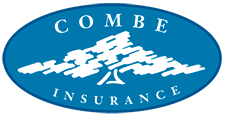Home Insurance FAQ |

- How much should I insure my home for?
Often the amount of insurance is determined by either your bank or your insurance company. If you have a loan on your property, the lender will require that you have enough coverage for the loan amount which may not correspond to the amount of insurance you may want to purchase and be too little or even too much for your circumstances.
Sometimes an insurance carrier will also impose conditions on your policy like replacement cost protection. This may also affect the amount of insurance you choose to purchase.
Finally, the primary purpose of insurance is asset protection. The more coverage you elect to purchase typically means less out-of-pocket expense you would expect to pay if a catastrophe occurs. The coverage amount and deductibles you choose should be determined by the losses you can financially afford. You should have enough coverage to protect your property to its full value and enough liability coverage to protect you against possible lawsuits resulting from your negligence.
- What affects my insurance price?
There are many factors that affect how much you pay for insurance. These include issues like your credit rating and whether or not you have more than one policy type with the insurance company. Other factors include the age of the house. Older homes may not only cost more to insure but may also have limited or no coverage. The type of construction used for your house will affect the price. A frame house may cost more to insure than brick. Another factor may be fire protection. The number and distance of local fire departments and availability of fire hydrants may determine how much you may pay as well.
Not all insurance carriers will treat your housing factors equally so it usually will pay to have your agent check with a number of carriers to determine which policy is best for you.
- What is a deductible and what deductible should I choose?
The deductible is the amount you have to pay out of your pocket on each claim and only applies to coverages on your personal property and house. Insurance only pays on a claim once the deductible amount is exceeded. The lower the deductible, the more the policy will cost. A policy with a $250 deductible will cost more than a policy with a $1000 deductible. Higher deductibles may save you insurance premium dollars, but purchasing, for example, a $1000 deductible in lieu of a $100 deductible will mean you will normally pay $900 more at the time of loss.
- What is "property damage" and what does "property damage" cover?
Anytime you sustain damage to your home and personal property by perils such as fire, lightning, windstorm or hail it is property damage and is paid for by "property damage" coverage. Unless specified, flood and earthquake are not covered. Flood damage may be available through your carrier, but may also be found through the government's National Flood Program ("NFP"). To learn more about the NFP you can contact your insurance agent. Insurance companies differ in the coverages they offer, carefully read your policy before a loss to determine what your policy will cover.
- What is "contents insurance" and what does "contents insurance" coverage include?
Typically, "contents" or the personal belongings of you and your family members who live with you, are covered up to 50% of the limit of liability carried on your home. However, some high-priced items such as cameras, jewelry should be listed separately on the policy so that you avoid the possibility of expensive items not being fully covered at the time of loss.
- What are "additional living expenses" or "loss of use" coverages?
Many home-owners insurance policies provide for the expenses incurred if your home is damaged by a covered peril and you cannot live in your house while repairs are being made. This coverage is generally subject to time limits and usually only covers any expense required to maintain your normal standard of living. In some instances, this coverage may include the costs of a motel, restaurant meals, or storage of some of your property.
- What is "personal liability insurance" coverage?
Coverage for a lawsuit or a claim resulting from personal injury or property damage to others not in your household is Personal Liability Coverage. These claims must not be business or auto related. This coverage includes defense costs and protects you and all of your family members who live with you for which you become legally obligated to pay. These claims are limited by the stated policy amount of liability coverage.
- What does "medical payments insurance" cover?
Medical Payments Coverage pays the expenses for others accidentally injured on your property or any areas adjoining your property (like sidewalks), regardless of who is at fault. This coverage does not apply to the insured's injuries or those of family members living with the insured. It also does not cover injuries from actions involving a home business, any intentional acts, or the rental of your property.
- What is "replacement cost"?
Replacement Cost is determined by calculating the cost to replace/repair your loss or damages without deducting for depreciation. This cost is based on using similar materials and quality of the original property. Replacement cost may be applied to the structure, personal belongings or both — contact your agent for your policy coverages.
- What is "actual cash value"?
Actual Cash Value is simply the replacement cost of the loss less depreciation. Depreciation is determined by calculating the decrease in value due to age and normal wear and tear on the property. Most home policies also cover your personal belongings on an actual cash value basis as well. Just because you policy doesn't include replacement cost coverage, doesn't mean it is available for your policy or with another carrier. Please contact your insurance agent for more specific coverage options.
- Am I covered if I'm found liable for injuring another person?
Your homeowner's policy should cover the liability of any medical bills and legal expenses, up to the liability policy limits, for injury resulting from your negligence. Intentional injury or losses are not covered. Contact your insurance agent for your specific policy.
- What kinds of damage does a basic homeowner's policy cover?
The most basic policy coverages insure against windstorm, hail, lighting, fire, smoke, vandalism, theft, riot, aircraft, vehicles, and malicious mischief. Some policies include coverage for electrical surges, water-related damages from home appliances, falling objects, weight of snow and ice. Your coverage is subject to your policy limits, contact your insurance agent before you experience any loss.
- What exclusions will my homeowner's policy usually have?
Not all policies are alike; you must call your agent for the exclusions for your policy. Typical exclusions include normal wear and tear, floods, mold, earthquakes, wars and intentional damage.
- How much can I expected to be paid if my house is destroyed by a covered incident?
Insurance reimbursements are usually paid based on either replacement value or an actual cash value. Payment on replacement cost is just that, the cost to replace the loss without subtracting depreciation (usually the policy has a built in maximum value). The most common reimbursement method is actual cash value. This is determined as the replacement value less depreciation. Both payment methods will subtract the amount of the deductible from the total payment amount.
- How do I make a claim for the contents of my home if they are stolen or destroyed?
The safest policy is to make an inventory (video, list, photographs) of all of the contents of your home. It's also wise to keep this list away from your property in a safe-deposit box. Keeping this record will remove most of the guesswork from filing your claim. This record may also help prove ownership in case of theft.
If you are the victim of theft, disaster, or vandalism always contact your agent before cleaning or repairing anything. You may want to videotape the losses as well to record the extent of damages.
- Is there coverage for high-priced items that are more expensive than the coverage limits allowed on my homeowner's policy?
For expensive items like jewelry, furs, and electronic equipment, additional coverage may be purchased through an endorsement to your existing policy or by adding a new, separate policy. Ask your Insurance agent for details.
- Is homeowners insurance the same for a house as a condominium?
Property ownership for a condominium is handled differently than for a house meaning that insurance is also handled differently. A condominium has areas of common ownership not usually covered by your insurance. The homeowner's policy for condominiums is called HO-6 and usually covers personal property, some types of liability, and coverage for the structure that falls under your ownership agreement.
- I am renting and I am not a homeowner. Will the owner's insurance cover my belongings if the building burns down?
As a renter, your own personal belongings are not covered under the owner's or landlord's property insurance. The loss of your personal belongings (furniture, clothing, etc.) is not covered unless you have renter's insurance. Renter's insurance is similar to a homeowner's policy. It contains many of the same provisions except coverage of the structure itself. A renter's policy will cover your personal belongings (destruction or theft) and may also include coverage against liability claims.
- Who is covered under my homeowner's policy?
Typically, a homeowner's policy will cover the insured, the insured's spouse, the insured's children, and others under 21 who are under the insured's care. Others like employees (nanny or housekeeper) may also be covered against loss of personal property. Under some circumstances coverage may be added or extended for other guests.

